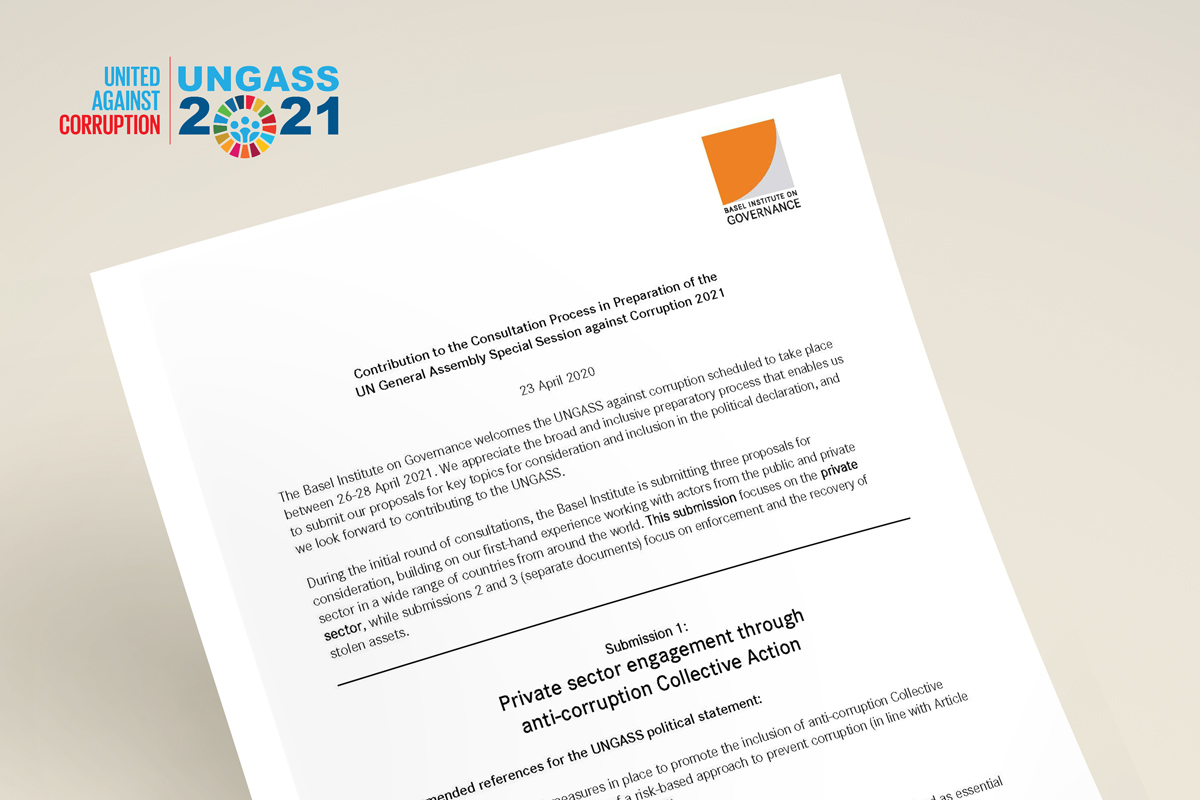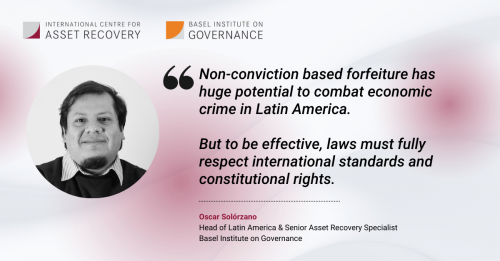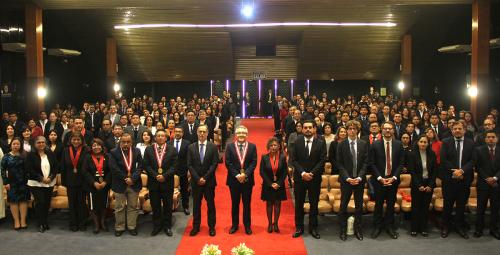How and why the UN should support anti-corruption Collective Action with the private sector – our UNGASS submission

One of our two submissions to the UN General Assembly Special Session against Corruption 2021 concerns private-sector engagement in the fight against corruption through anti-corruption Collective Action.
Our recommendation
UN Member States should put measures in place to promote the inclusion of anti-corruption Collective Action by the private sector as part of a risk-based approach to prevent corruption (in line with Article 5, UN Convention against Corruption (UNCAC)).
The reasons
Well-implemented anti-corruption compliance programmes are increasingly acknowledged as essential for the private sector in order to address their corruption risks. Member States, international organisations, multilateral development banks, private sector stakeholders as well as the private sector itself, have all recognised this responsibility. See, for example, Article 12 of the UNCAC, which focuses on the private sector's role in combating corruption.
Private-sector anti-corruption compliance programmes are often modelled on guidance issued by these various bodies, as well as other sources such as judicial rulings and non-conviction based resolutions issued by law enforcement authorities. Examples include the OECD Good Practice Guidance on Internal Controls, Ethics and Compliance, the US Sentencing Guidelines and the UK Ministry of Justice Guidance on the UK Bribery Act.
Anti-corruption compliance programmes – no matter how well implemented – may have limited effects on corruption risks in certain markets and environments where corruption is systemic. In these markets, not only individual companies but entire sectors are challenged to conduct business with integrity. This results in the so-called prisoners’ dilemma.
Anti-corruption Collective Action has the potential to transform this limitation. This is increasingly recognised by Member States in policy and law enforcement guidance, and standards set by a range of international initiatives. But much more needs to be done to galvanize the potential of Collective Action to make business integrity programmes more effective.
Member States can incentivise the private sector to integrate Collective Action into their compliance programmes to address systemic corruption risks. This can be achieved through its inclusion in national and sectoral strategies, guidance and other relevant policy standard setting documents.
More information
- View our contribution on the private sector to the Consultation Process in Preparation of the UN General Assembly Special Session against Corruption 2021.
- Find out more about Collective Action at the Basel Institute.
- Learn about anti-corruption Collective Action around the world on the B20 Collective Action Hub.
- Visit the official website of the UNGASS against Corruption 2021.




